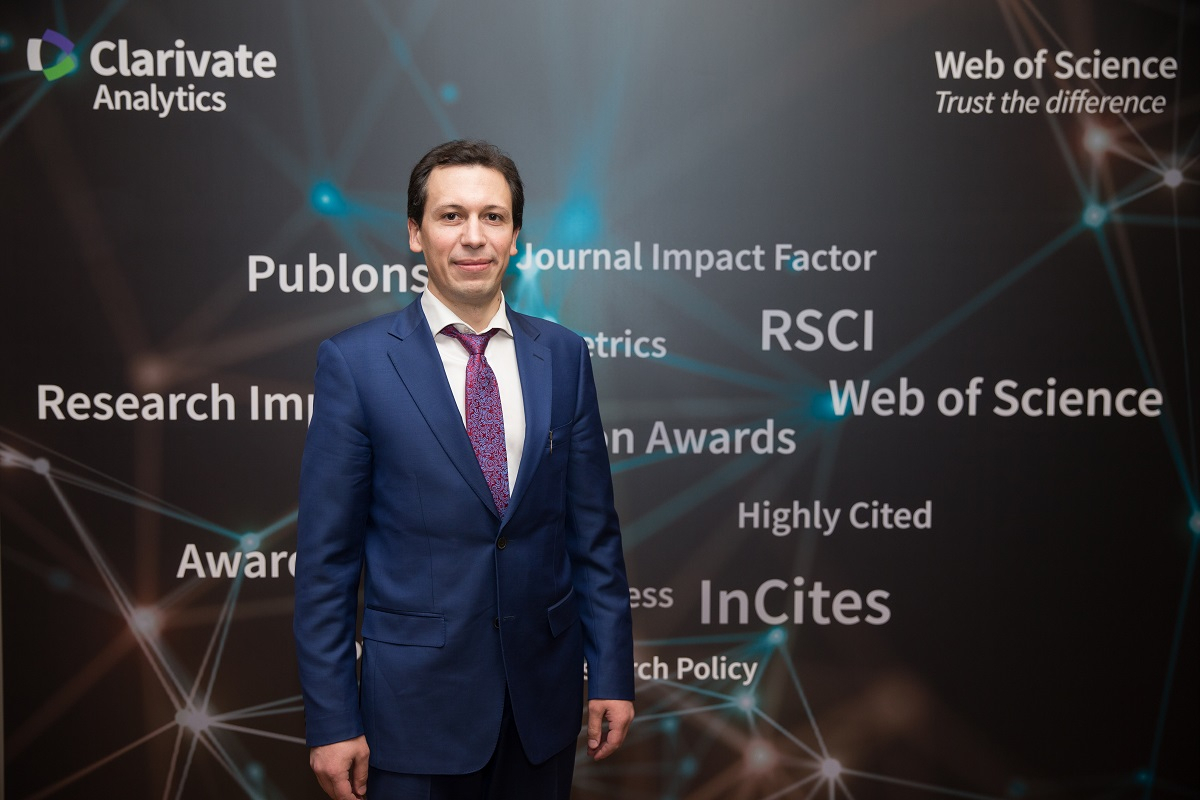St Petersburg University scientist ranks among the top 3 best mathematicians in Russia
Professor Nikolay Kuznetsov, Head of the Department of Applied Cybernetics at St Petersburg University, has become the third best Russian scientist in the field of mathematics. In the international ranking compiled by the academic platform Research.com, among the 1,000 best mathematicians in the world, 31 scientists represent Russia, four of them are specialists of St Petersburg University.

The h-index, which assesses the productivity of scientists based on the number of publications and their citations, is taken into account when compiling the ranking. Thus, the list includes 227 publications by Nikolay Kuznetsov, whereas the h-index of the mathematician is 57.
It should be noted that, according to the Web of Science, Professor Nikolay Kuznetsov has been among the most highly cited researchers in the world for several years. Also, the mathematician has recently become the youngest foreign member of the Finnish Academy of Science and Letters.
Nikolay Kuznetsov is Head of the Department of Applied Cybernetics at St Petersburg University and Head of the Laboratory of Information and Control Systems at the Institute for Problems in Mechanical Engineering at the Russian Academy of Sciences. He is also the author and co-author of more than 400 publications, five monographs and ten certificates of intellectual property. The mathematician has also received the prize for Research Papers from St Petersburg University and the Afraimovich Award for his work on the theory of hidden oscillations.
In 2018, 2020 and 2022, the staff of the Department headed by Nikolay Kuznetsov was awarded the status of the Leading Scientific School (the Centre of Excellence) of the Russian Federation and received support from the Council for Grants of the President of the Russian Federation. The scientific interests of the School include mathematical control theory and nonlinear dynamics.
’I am very pleased to find myself in this ranking among outstanding scientists from St Petersburg, who not only are known for their scientific achievements in mathematics, but also have had a great influence on the development of mathematics education at our University. In total, the published list this year includes 31 Russian mathematicians, four of whom represent St Petersburg school of mathematics and for many years have taught students and developed mathematical education at St Petersburg University. I think this is an indicator of the fundamental role of our University in training talented scientists for St Petersburg school of mathematics and our country,’ shared his impressions Professor Nikolay Kuznetsov, Head of the Department of Applied Cybernetics at St Petersburg University.
Professor Kuznetsov also noted the great role of St Petersburg University in training qualified specialists in mathematics. Thus, in the early 1990s, the joint efforts of Gennady Leonov, Dean of the Mathematics and Mechanics Faculty of St Petersburg University, Ludwig Faddeev, Director of the St Petersburg Department of the Steklov Mathematical Institute of the Russian Academy of Sciences, and Anatoly Vershik, Vice-President of the St Petersburg Mathematical Society, made it possible to implement in St Petersburg University a special programme for training talented students in the field of mathematics. The opportunity to apply a fundamental mathematical education at the University (including applied mathematics, programming, and mechanics) enabled all students to fulfil their potential. This programme, which has existed for 25 years, proved to be effective and became the basis for the later establishment of a new faculty of mathematics at St Petersburg University.
The International Congress of Mathematicians (ICM) will be held in St Petersburg from 6 to 14 July 2022. In addition to the main part of the congress, satellite conferences will be held in 15 cities in Russia as well as in Poland, Belarus, Finland and India from April onwards. It is the most important meeting in the area of fundamental and applied mathematics worldwide and one of the oldest scientific congresses. The first International Congress of Mathematicians was held in 1897 in Zurich, Switzerland.
The ICM programme includes a very wide range of events, including plenary and invited lectures, panel discussions, public lectures, educational events for the general public, short presentations, poster sessions and much more.

